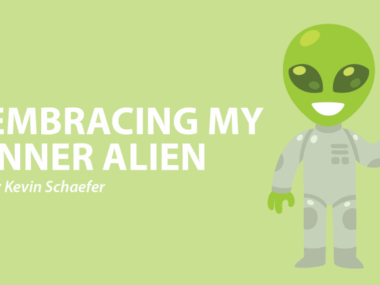The disability advocates who inspire me to become whole
In appreciation of 3 leaders in wheelchairs who lived out their activist values
Written by |

I live with spinal muscular atrophy (SMA), a condition that, in my case, makes it impossible for me to move my body on my own. But that’s not where my story begins — or ends.
People often call me strong, but they rarely see the whole picture. They don’t see the hours I spend coordinating care, the mental gymnastics of daily living, or the ache of watching the world speed by while I wait for someone to move my arm. They see resilience, but not the rage. They hear laughter, but not grief.
For a long time, I believed that to be worthy, I had to minimize my disability. I thought value came from rising above my limitations. So I clung to the parts of myself that I believed others would accept more easily: my intelligence, my creativity, and my kindness. Anything that made me feel like I was “more than” my body. What I didn’t yet understand was that my disabled body wasn’t something I had to overcome to be whole. It’s part of what makes me whole.
That understanding began to take root when I discovered people whose lives echoed back truths I hadn’t yet dared to believe about my own. People like Brooke Ellison, Judy Heumann, and Christopher Reeve.
Three trailblazers in life with a disability
As someone navigating college with SMA, I know how exhausting it is to constantly adapt the world to meet my body’s needs. Every class I attend requires meticulous coordination, including accommodations, caregivers, equipment, and transportation. It’s never just showing up. Seeing Ellison, who died last year, live and lead in spaces that often excluded disabled people made my own goals feel more tangible. She didn’t wait for permission; she claimed space and brought others with her.
Because of her, I’ve learned to permit myself to dream bigger. I believe I can earn my degree, become a licensed clinical social worker, and use my voice to create the kind of change I once only imagined.
Heumann, who died in 2023, taught me that my existence isn’t just personal; it’s political. Living with SMA means navigating a world filled with barriers: doctors who speak around me, not to me; buildings I can’t enter; assumptions I must constantly dismantle. It wears on you. But Heumann didn’t accept those barriers; she tore them down. She demanded more. And she showed us how to fight not just for access, but also for dignity. Her book, “Being Heumann,” captures this perfectly.
Her advocacy helped me reframe my efforts as acts of resistance. When I organize virtual support groups and creative spaces for people with disabilities, it’s not just about community; it’s about activism. Every time someone feels seen or valued without needing to explain themselves, I know I’m continuing Heumann’s work. She taught me that we don’t need to wait for change. We are the change. And we carry each other forward.
And then there’s Reeve, my Superman. Not because he wore a cape as a film actor, but because he embraced the vulnerability that comes with depending on others for survival. Reeve, who died in 2004, once said the most challenging part of his injury wasn’t the physical limitation; it was the loss of independence, the fear of being forgotten, the emotional toll of needing help with every aspect of his life.
I know that fear. I live it daily. When I enter a room, I wonder if people will speak to me or only to the person pushing my wheelchair. When caregivers cancel, I don’t just lose a service; I lose the ability to show up. I’ve missed events. I’ve had to stay in bed. It’s not a weakness. It’s reality.
But like Reeve, I show up anyway. I continue to create, connect, and lead. I’ve learned, as he did, that interdependence doesn’t lessen your power; it deepens your humanity. And every time I choose joy, purpose, or community in the face of that uncertainty, I’m honoring the part of me that refuses to be diminished.
None of these trailblazers had SMA, but I see myself in all of them.
This reflection is my dedication not only to these icons whose names will echo through history, but to the everyday role models whose names may never be printed in textbooks. To the caregivers who show up with patience and grace. To the friends who hold space for my full humanity. To the disabled peers who live boldly, without fanfare or applause. They may never stand on stage or have documentaries made about them, but they’ve shaped me just the same.
Their strength, creativity, and compassion remind me that legacy isn’t always loud. Sometimes it’s found in the quiet decision to love, to fight, to keep going.
This column is for them, too, for all of us becoming whole, one breath, one act of courage at a time.
Note: SMA News Today is strictly a news and information website about the disease. It does not provide medical advice, diagnosis, or treatment. This content is not intended to be a substitute for professional medical advice, diagnosis, or treatment. Always seek the advice of your physician or other qualified health provider with any questions you may have regarding a medical condition. Never disregard professional medical advice or delay in seeking it because of something you have read on this website. The opinions expressed in this column are not those of SMA News Today or its parent company, Bionews, and are intended to spark discussion about issues pertaining to spinal muscular atrophy.





Leave a comment
Fill in the required fields to post. Your email address will not be published.